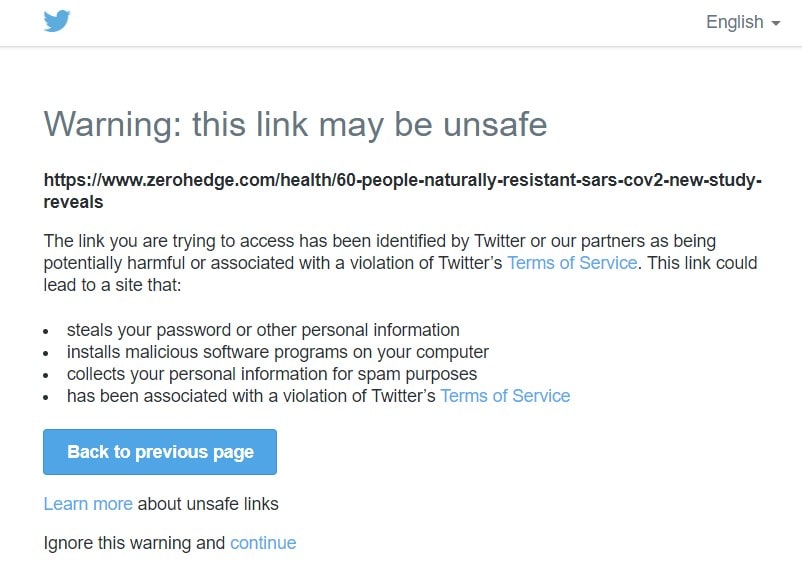Popular media outlet ZeroHedge got its Twitter account suspended back on January 31st for publishing an article questioning the origin of the novel coronavirus (COVID-19). A bit more than four months after that, the social media lifted the ban.However, just two days later, Twitter appears to continue flagging the media’s content as “potentially harmful,” signaling that a shadowban may still be in place.ZeroHedge Ban LiftedOn January 31st, ZeroHedge saw its Twitter account suspended for “violating rules against abuse and harassment.”The outlet had posted an article questioning the origin of the novel coronavirus (COVID-19), presenting information on Wuhan’s Institute of Virology and Dr. Peng Zhou, a researcher at said institute and Leader of the Bat Virus Infection and Immunization
Topics:
George Georgiev considers the following as important: AA News, Twitter
This could be interesting, too:
Chayanika Deka writes SEC Closes Investigation Into Gemini, Winklevoss Seeks Reimbursement
Wayne Jones writes CZ Criticizes Safe Wallet’s Post-Mortem on Bybit Hack
Mandy Williams writes Bitcoin ETFs Record Over .6B in Outflows in the Past 2 Weeks
Wayne Jones writes This Trending AI Token Hits New ATH After Binance Listing
Popular media outlet ZeroHedge got its Twitter account suspended back on January 31st for publishing an article questioning the origin of the novel coronavirus (COVID-19). A bit more than four months after that, the social media lifted the ban.
However, just two days later, Twitter appears to continue flagging the media’s content as “potentially harmful,” signaling that a shadowban may still be in place.
ZeroHedge Ban Lifted
On January 31st, ZeroHedge saw its Twitter account suspended for “violating rules against abuse and harassment.”
The outlet had posted an article questioning the origin of the novel coronavirus (COVID-19), presenting information on Wuhan’s Institute of Virology and Dr. Peng Zhou, a researcher at said institute and Leader of the Bat Virus Infection and Immunization Group.
Two days after that, a reporter from BuzzFeedNews wrote that ZeroHedge falsely accused the Chinese scientist of creating the coronavirus as a bioweapon.
At that time, ZeroHedge saw its account suspended. 133 days later, though, on Friday, June 12th, the news outlet was reinstated after Twitter reportedly admitted they “made an error in our enforcement action in this case.” A Twitter spokesperson told Bloomberg that “Based on additional context from the account holder in appeal, we have reinstated the account. We have a dedicated appeals process for all account holders.”
But Is It Really?
Despite admittedly making a mistake, it appears that Twitter continues to flag some of ZeroHedge’s content.
Just yesterday, the outlet published another article, covering a study on resistance to SARS-COV2, and that’s what users see when trying to open it.

Once again, the warning says that the content might be “potentially harmful” or in violation of Twitter’s Terms of Service. Moreover, it also warns that the link might lead to a site that “steals your password or other personal information, installs malicious software programs on your computer,” and so forth.
In actuality, the links lead to an article that cites a study, conducted by scientists at the University Hospital in Zurich on “Systemic and mucosal antibody secretion specific to SARS-CoV-2 during mild versus severe COVID-19.”
It’s Not Just Twitter
Centralized social media have the authority to one-sidedly suspend, or flag content they deem is in violation of their Terms of Agreement. Twitter is just the latest example.
Just a month ago, CryptoPotato reported that YouTube is shadowbanning Bitcoin-related videos as several content creators complained that their videos are impossible to locate.
This has prompted a debate in the crypto community on whether a decentralized social media might be the solution to all of the above.
